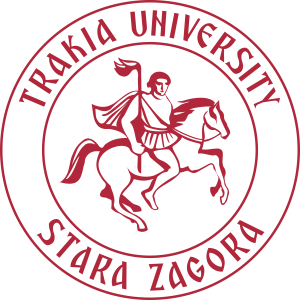The University of Cologne (UoC)
The University of Cologne (UoC) is one of the oldest and largest within Europe and is recognised for its
high standards of graduate education and international reputation of academic accomplishment.
Currently, more than 48.000 students are enrolled at UoC in 335 degree programmes. The six faculties
host currently around 650 professors and junior professors as well as more than 5000 scientific staff.
UoC is firmly committed to the advancement of human knowledge through basic research, but with an
eye to transfer and application in the real word.
Team members of the research group are doctoral students and research assistants in the department of
special education and rehabilitation, led by Univ.-Prof.´ in Dr. Charlotte Hanisch.
Univ.-Prof.´ in Dr. Charlotte Hanisch and her team are licensed clinical child psychologists with clinical as
well as research expertise in child and adolescent ADHD. They have developed and evaluated several
training programs to increase teachers’ and school staff’s knowledge on child development and mental
health.
There is close cooperation with the working group of Prof. Dr. Manfred Döpfner from the University Hospital of Cologne.
Website: uni-koeln.de; hf.uni-koeln.de/621
die Berater Unternehmensberatungs GmbH
The core competence of ‘die Berater’ Unternehmensberatungs GmbH lies in adult education. die Berater® is active at around 45 locations throughout Austria and offers holistic counselling and training. The services are aimed at individuals, companies of all sizes and industries as well as the public sector, e.g. the Public Employment Service Austria (AMS), the Austrian Integration Fund (ÖIF), ministries, the European Commission and other players in the education sector.
The Digital Media and Marketing department develops customised e-learning and mobile learning solutions and produces state-of-the-art e-learning content.
With its bridges to europe department, Berater® has been involved in more than 200 EU-funded projects in various roles – as project coordinator, partner and evaluator. Through these projects, a sustainable European partner network of more than 800 organisations from 45 countries has been developed.
Website: dieberater.com; bridgestoeurope.com
Trakia University
Trakia University – Stara Zagora, Bulgaria is a state institution. It was founded in 1995. The University
offers professional bachelor, bachelor, master and PhD, as well as programs for qualification and post-
graduate training in the system of lifelong education. The teaching staff includes 227 professors and
associated professors and 419 non-academically ranked teachers. The university has more than 6000
students, including 300 foreign students from 16 countries.
The Department for Information and In-service Teacher Training (DIITT) is a part of Trakia University. It
serves as a bridge between in-service teachers and continuing education and career development. DIITT
provides both short term and long-term training and qualification of teachers and administrative staff
engaged in education and science development; DIITT organizes an annual pedagogical conference –
Pedagogical Forum, which has become a recognizable place for educators, policy makers- on local,
national and European level. The Department publishes a quarterly e-journal with articles and reviews
on topics in pedagogy and psychology. The articles are published in Bulgarian, Russian or English. The E-
journal is part of ERIH+ and a national database NACID.
Website: uni-sz.bg/engl, dipku-sz.net

CATRO Bulgaria
CATRO Bulgaria is part of the leading Austrian consultancy group – CATRO Personalberatung and die Berater®, providing cutting-edge know-how in all areas related to human resources management and development. Since 2010, CATRO has been supporting its clients in Bulgaria with recruitment, training, and organizational development services. CATRO Bulgaria specializes in providing corporate trainings in soft skills, psychological and career counselling, offering innovative solutions in all areas of people management: talent acquisition and employer branding, training and development, leadership programmes, employee engagement and wellbeing programmes.
A crucial part of CATRO’s mission is to develop and implement corporate socially responsible projects, which aim at building a bridge between different socially disadvantaged groups and the corporate sector, opening a space for identifying opportunities for sustainable partnerships. As a reliable partner, coordinator, evaluator, and trainer, the CATRO Bulgaria team has successfully implemented more than 30 European projects in various fields since its establishment in 2010.
Website: catrobg.com
Dublin City University
Dublin City University was founded in 1981 and comprises over 16,000 students including over 2600 postgraduate students, of whom c. 800 are research students. Following the incorporation in 2016 of leading colleges of education (St Patrick’s College, Drumcondra; Mater Dei Institute of Education; Church of Ireland College of Education) into the University, the number of DCU staff members increased from 400 to over 650. The University is now a multi-campus university occupying approximately 60 hectares just north of Dublin City Centre. Having grown its student population by more than 50% in the past five years, DCU is Ireland’s most innovative university and fastest-growing university, and in 2016 it delivered more than 200 programmes across its five faculties – Humanities and Social Sciences,
Science and Health, Engineering and Computing, DCU Business School and DCU Institute of Education. Excellence in DCU education and research activities has led to its ranking in the top of 1.5% of universities in the world. The University is consistently ranked among the top young universities globally, appearing in the 2020 QS Top 70 under 50, and 2019 Times Higher (THE) Top 100 under 50. DCU has twice been named Sunday Times ‘University of the Year’ (2004, 2010).
The 2017 QS World University Rankings by Subject feature DCU in the top 250 of more than 4,438 universities worldwide in the areas of Communications and Media Studies, Business and Management Studies and Modern Languages. DCU is also now ranked in the top 300 universities in the world for both ‘arts and humanities’ and ‘social sciences’. The 2018 Times Higher Education World University Rankings placed DCU amongst the top 300 universities in the world in the area of Life Sciences. DCU’s location is quite unique, servicing radically different neighbourhoods, incorporating some of Ireland’s most affluent communities and some of the country’s most disadvantaged. From its inception as a small technological university, DCU has sought to actively engage and provide equal access to all groups within the wider community. In 1989 as a fledgling University, DCU’s Governing Body voted in favour of implementing a local initiative aimed at addressing the low numbers of students entering third-level from one of its closest neighbourhoods in North Dublin – Ballymun.
Website: dcu.ie

SPEL (Sociedade Promotora de Estabelecimentos de Ensino, Lda)
SPEL (Sociedade Promotora de Estabelecimentos de Ensino, Lda) was founded in 1990 by a group of
teachers that proposed the creation of a school’s concept that, not only gave knowledge to its students
but also helped them psychologically and socially, implementing teaching methods and VET that
adjusted itself to the less privileged communities’ social reality. This was relevant because, in these
communities, you would note the highest percentage of school abstinence or dropout.
With this, SPEL created new schools or associated itself with already existing schools, located in
communities with a higher risk of socioeconomic exclusion. These are examples of regions of
manufacturing communities, that become unemployed following the relocation of factories to other
countries and fishing communities that lost their jobs due to the little competitiveness of their fishing
practices after Portugal joined the European Economic Community in 1985.
Website: spel.com.pt
